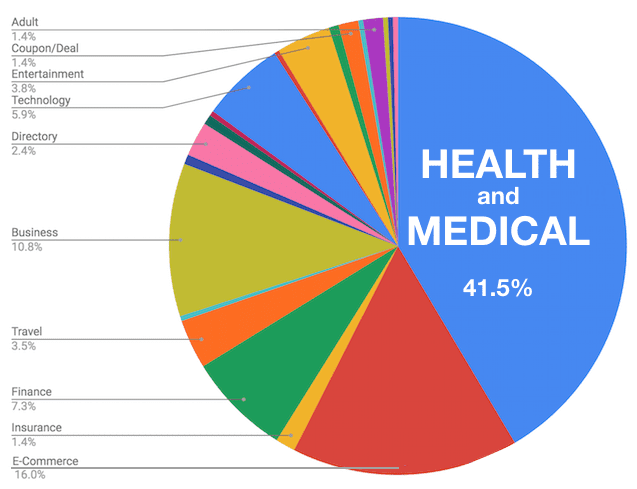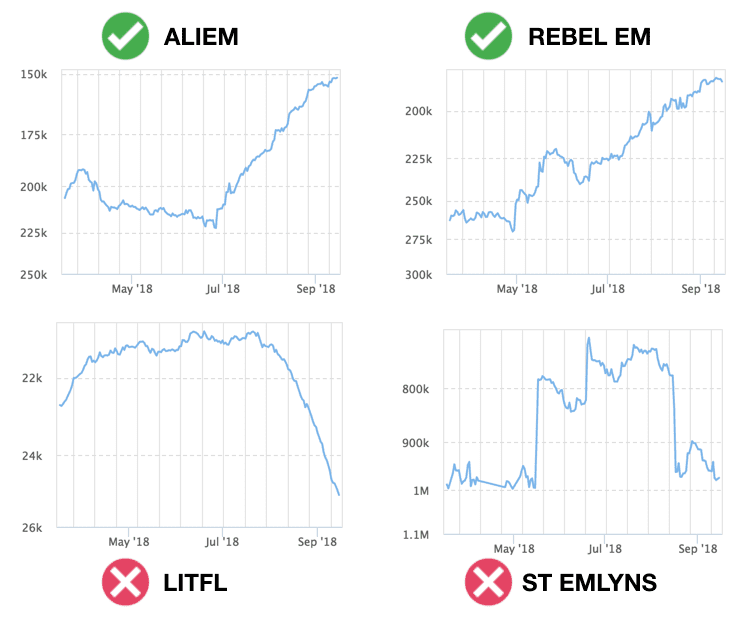Google Medic Update – EAT protocol
Google Medic Update
On August 1st, Google released a ‘broad core algorithm update‘, which has caused major fluctuations in websites search rankings. These significant variations predominantly involved sites in the health and medical blogosphere (up to 42% of sites affected), and has been dubbed the Google Medic Update
Google continuously refines its search algorithms to provide the best and most credible material for consumers in search. The latest algorithm iteration demonstrates that Google aims to deliver search results full of pages created by trusted experts with recognized authority in their field.
How does this affect #FOAMed search?
In theory this is a real positive for #FOAMed search and the global curation and presentation of high quality medical education/information.
Google researches, reviews and validates health/medical sites and provides top search results to the most credible; authoritative; trusted and peer reviewed medical education. Google uses anonymous external ranking validation to ensure the highest quality information rises to the top of Google search…
How did the ‘Medic Update’ affect #FOAMed sites?
We reviewed the effect on four websites in the 6 weeks subsequent to the Google Medic algorithm update. Crude analysis revealed some interesting (and slightly distressing) results.
Google search result rankings; Alexa ranking; and global page-views were considerably affected despite no significant change to content/structure of the sites reviewed. For example, over the last 6 weeks, LITFL has seen its readership fall from 3M/mo to 500K mainly as a result of Google search queries falling by a proportional 75%.
Reviewing Alexa ranking, the July/August impact of the Medic Update is obvious. Clearly 2 sites were EAT-awesome and 2 were EAT-awful…

ALIEM and REBEL EM do a fantastic job of highlighting authors credentials; publications; contact details; roles and providing verified social media links. Roles of creator and webmaster are defined and peer reviewed articles are documented.

LITFL and St Emlyns …less so. Both sites are EAT non-compliant failing to supply author credentials; verified social media links; author qualifications; peer reviewer details; or even a working contact form. LITFL removes trust by adding banal author descriptors such as ‘Nice bloke, but too tall‘ whilst St Emlyn’s seem to have removed the author profiles completely. And with both sites there is a lot of too much ‘subtle satire‘…which may be misconstrued
But, what is EAT anyway?
E-A-T stands for “Expertise, Authoritativeness and Trustworthiness.”
E-A-T has been around since 2008 with multiple iterations created to refine the mechanism by which content on the web can be reviewed, rated and stratified.
Google released its 160-page Search Quality Evaluator Guidelines in July 2018. These guidelines are used by 10,000+ ‘Quality Raters’ worldwide to evaluate real searches that happen on Google and then rate the quality of pages that appear in the top results…r8rs gonna r8
Expertise, Authoritativeness, Trustworthiness is listed as an important quality characteristic, which is defined in more detail in section 3.2 of the Google rater guidelines:
Section 3.2: E-A-T
3.2 Expertise, Authoritativeness, and Trustworthiness
Remember that the first step of quality rating is to understand the true purpose of the page. Websites or pages without some sort of beneficial purpose, including pages that are created with no attempt to help users, or pages that potentially spread hate, cause harm, or misinform or deceive users, should receive the Lowest rating.
For all other pages that have a beneficial purpose, the amount of expertise, authoritativeness, and trustworthiness (E-A-T) is very important. Please consider:
- The expertise of the creator of the Main Content (MC).
- The authoritativeness of the creator of the MC; the MC itself, and the website.
- The trustworthiness of the creator of the MC, the MC itself, and the website.
High E-A-T medical advice should be written or produced by people or organizations with appropriate medical expertise or accreditation. High E-A-T medical advice or information should be written or produced in a professional style and should be edited, reviewed, and updated on a regular basis.
Why is this important?
Medical and health sites fall under the banner of ‘Your Money or Your Life’ (YMYL) websites so named as they could ‘potentially impact the future happiness, health, financial stability, or safety of internet users‘:
Section 2.3: YMYL Pages
2.3 Your Money or Your Life (YMYL) Pages
Some types of pages could potentially impact the future happiness, health, financial stability, or safety of users. We call such pages “Your Money or Your Life” pages, or YMYL. The following are examples of YMYL pages:
- Medical information pages: webpages that provide advice or information about health, drugs, specific diseases or conditions, mental health, nutrition, etc.
- Shopping or financial transaction pages: webpages that allow users to make purchases, transfer money, pay bills, etc. online (such as online stores and online banking pages).
- Financial information pages: webpages that provide advice or information about investments, taxes, retirement planning, home purchase, paying for college, buying insurance, etc.
- Legal information pages: webpages that provide legal advice or information on topics such as divorce, child custody, creating a will, becoming a citizen, etc.
- News articles or public/official information pages important for having an informed citizenry: webpages that include information about local/state/national government processes, policies, people, and laws; disaster response services; government programs and social services; news about important topics such as international events, business, politics, science, and technology; etc. Please use your judgment and knowledge of your locale. Keep in mind that not all news articles are necessarily considered YMYL.
The intention of rating medical sites is clear. Google doesn’t want to send searchers to sites that could damage their health, lose them money, hurt their families or even risk their physical safety.
The E-A-T algorithm is about weeding out low-quality YMYL sites in favour of those containing safe, accurate, trusted and genuinely helpful information.
If your site is EAT-awful, can you fix it?
No…
…can you try and fix it?
Sure, why not. Nothing to lose
- Recognize, review and remediate
- Framework your site to highlight your E-A-T value
Time needed: 1 hour and 30 minutes.
- Review the impact
Analyze in simple terms the general trend following the Google Medic update. Site such as Alexa, Google Search Console and Google analytics can give a simple trend overview
- Evaluate ‘Creator’ architecture
Can a user easily find out who you are; what you do; determine your verified web presence; and contact you?
- Fix ‘Creator’ architecture
• Review and update your about us and contact page.
• Make sure your contact form is working and easily accessible
• Ensure your role is defined – e.g. ‘Creator’, ‘Webmaster’ and/or ‘Main Content author’ - Keep on keeping on
Google has said there is no “fix” for pages/sites that may perform less well, but to remain focused on building great content. Keep writing, keep blogging, keep enjoying providing high quality medical education – even if nobody will ever read it, ever again.
References:
- Schwartz B. Review of 300 impacted sites. August 2018
- Schwartz B. Google’s Aug. 1 core algorithm update: Who did it impact, and how much? August 2018
- Jarrett H. Your essential guide to the Google E-A-T algorithm update (The Medic update) August 2018
- Slegg J. Google Search Quality Rater Guidelines Updated: Beneficial Purpose, Creator Reputation & More July 2018
- Slegg J. Google’s New Creator Reputation: Guide For Site Owners & Creators August 2018
- Stellar SEO. Was the Google Medic (E.A.T) Update Also A Query Intent Update?
- Turgeon V. What is E-A-T and How Can It Improve the Credibility & Quality of Your Content? August 2018



Fascinating stuff, thank you for sharing. So many other websites I’ve seen seem to link and reference LITFL it is strange to see the algorithms penalize the site in this way.
Our traffic has dropped too. Very interesting post.